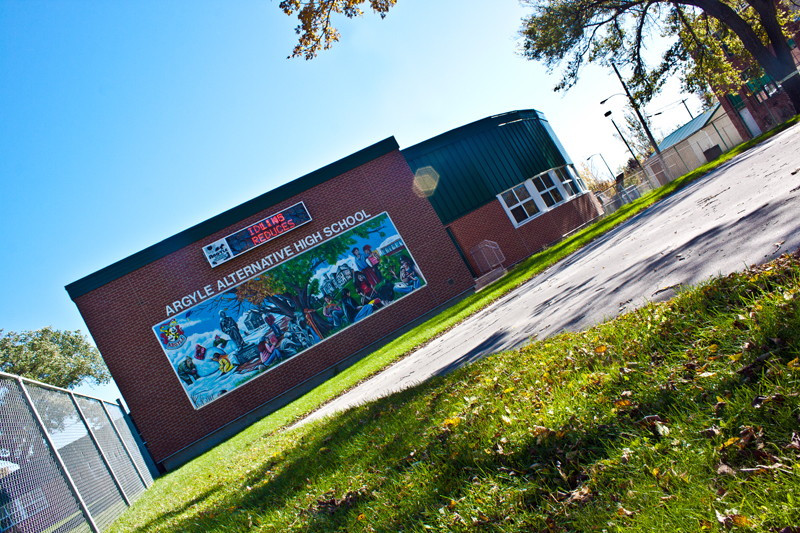More freedom to learn ... and slack off
Alternative high schools make it nearly impossible to fail, yet some do
Some school divisions in Manitoba have adopted an unwritten “no-fail” policy, meant to increase graduation rates and motivate students to stay in school. For alternative options like Argyle Alternative High School, there has always been a no-fail policy.
“Our no-fail policy is based on a students’ continuous progress,” said Pat Graham, principal of Argyle. “We won’t fail a student for incomplete work, but rather give them a second chance to complete the assignments at their own pace.”
Graham sees students come to Argyle after having social or educational issues with other schools.
But working at their own pace can spell trouble for some students, especially those who lacked motivation at their previous school.
Ruben Llanillos has been at Argyle for three years, after dropping out of his former school.
“My first high school wasn’t personal, everyone was being herded like sheep to graduate,” Llanillos said. “I also had issues being queer in that atmosphere ... I needed more of a human connection to do school work.”
Llanillos thinks the personal and relaxed atmosphere at Argyle helps students feel comfortable to do work, but also hinders motivation.
“There are a lot of people who slack off. Some can’t do well without pressure from teachers, and the teachers are very forgiving when it comes to being lazy,” he said.
Failure at Argyle is up to the student, according to Graham. If a student demonstrates that they are not interested in learning, they will be withdrawn from the Winnipeg School Division-funded school.
“ There are a lot of people who slack off. Some can’t do well without pressure from teachers.
Ruben Llanillos, Argyle student
Many students drop out, which worries her.
“If a student is not attending school I have to be concerned with what outside factors are pulling them away from an education,” she said.
These outside factors influence Argyle’s rules on accessibility for students. Many work to support themselves and need to co-ordinate times for schoolwork with teachers.
“The average time for a student to be at Argyle is two or three years,” she said. “Some come here and get all the credits they need in a semester, whereas others do it slowly over four years. We give them many options to complete assignments and are flexible to their needs. But, it’s an easy place to be, and we struggle with students becoming too comfortable here.”
In all Manitoba high schools, regular or alternative, the decision to allow a student to graduate is made on a case-by-case basis and now often influenced by school-specific no-fail policies.
“Whether kids are retained or passed is a school decision, but we encourage it to be made by a team of parents and principal,” said Gerald Farthing, deputy minister of education for Manitoba.
Although Argyle accommodates students’ schedules and provides them with services such as counseling and daycare, some still don’t graduate.
“We ask students to take responsibility for their learning ... last year we had 40 out of 90 Grade 12s graduate,” Graham said. “But those students may have been here in Grade 12 for two or three years.”
For more information about Argyle, visit www.wsd1.org/argyle/home .
Published in Volume 65, Number 5 of The Uniter (September 30, 2010)







